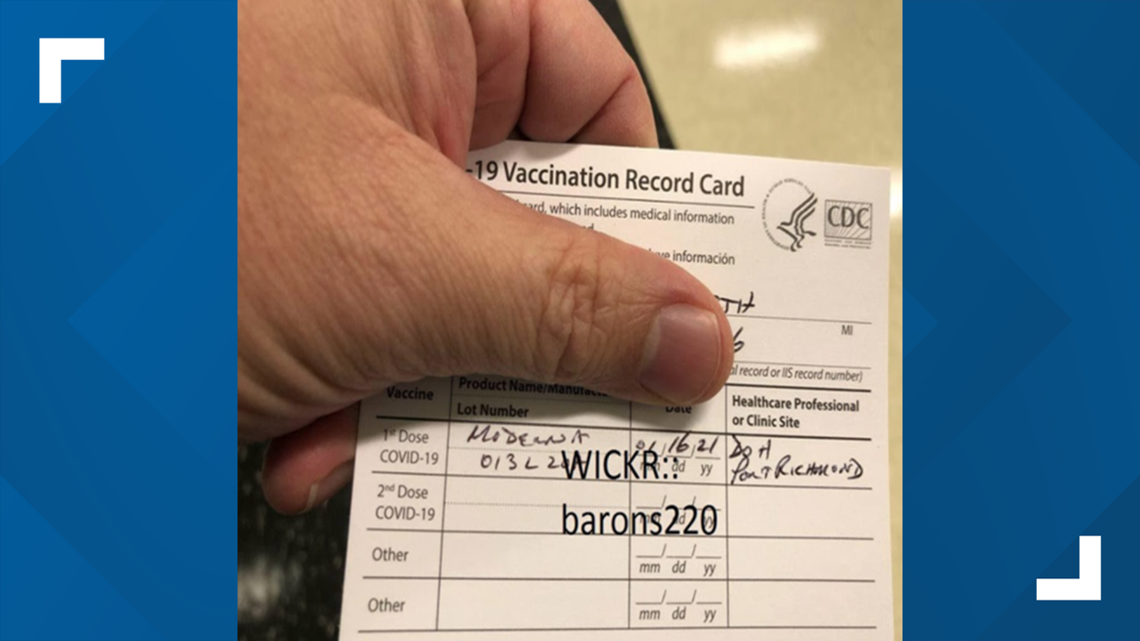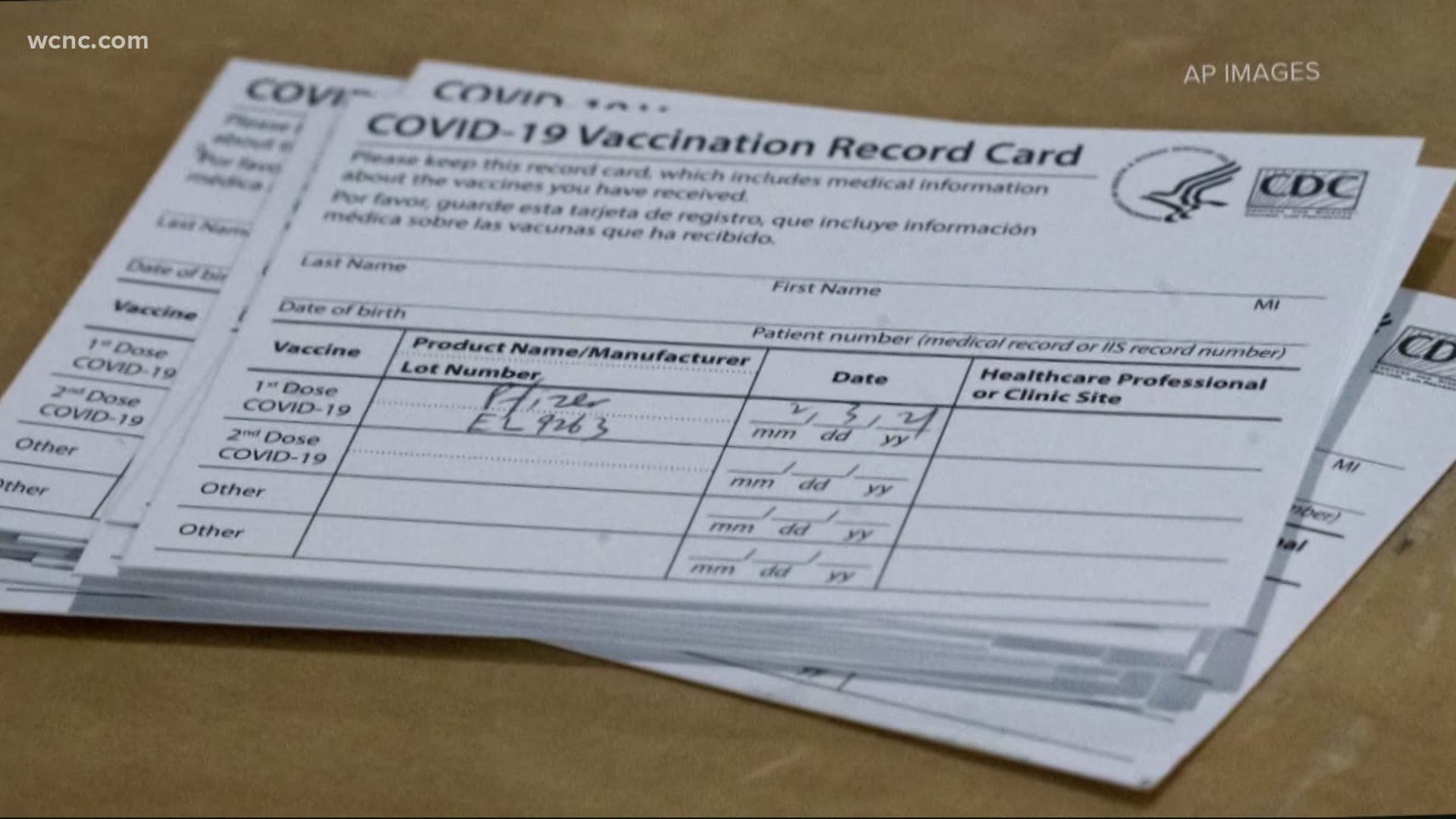CHARLOTTE, N.C. — As millions across the country continue to be vaccinated against COVID-19, some people are buying fake Centers for Disease Control and Prevention vaccine cards online.
The Department of Health and Human Services, Office of Inspector General and the FBI announced Tuesday they are investigating this growing trend.
Beyond the simple relief they provide, these cards are likely to play a big role in our lives in the months and years to come.
And that means those little cards are in high demand.
“Some people either don't want to get the vaccine or haven't been able to get it yet, for whatever reason, so there is an impetus to potentially acquire these various proofs without actually attaining them through proper sources,” Brian Linder, an emerging threat expert for IT security company Check Point, said.
"Maybe they want to travel and they can't for whatever reason, maybe by choice they don't want the vaccine, or they can't get it either here in the in the U.S. or other any other place," he added.
Linder said that's contributing to the popularity of fake vaccination cards being sold online.
“There’s a huge market for this," he said. "I'll tell you that some of the fakes are quite convincing. It's impossible to tell.”


Helping this shady business is thriving is the fact that there’s currently no federal system to authenticate these cards.
“It'd be impossible right now to know whether that was, you know, fraudulent or real," Linder said. “We were in such a rush to get people vaccinated with good reason ... but was there time to develop infrastructure around the validation? No.”
Linder said a digital verification or QR code may roll out eventually. In the meantime, he said these fraudulent cards and phony test results are a huge public health concern.
“There are personal reasons why people may or may not want to get vaccinated," Linder said. "That's OK. But the fake vaccine cards really put everybody at risk."
The FBI said the unauthorized use of an official government agency's seal such as HHS or the CDC is a crime and may be punishable under Title 18 United States Code, Section 1017 which states:
"Whoever fraudulently or wrongfully affixes or impresses the seal of any department or agency of the United States, to or upon any certificate, instrument, commission, document, or paper or with knowledge of its fraudulent character, with wrongful or fraudulent intent, uses, buys, procures, sells, or transfers to another any such certificate, instrument, commission, document, or paper, to which or upon which said seal has been so fraudulently affixed or impressed, shall be fined under this title or imprisoned not more than five years, or both."
And if the morality of it isn’t enough of a deterrent, Linder said most of the people purchasing these phony cards end up having their identities stolen.
“The running joke I have is that they should be paying you to give you a vaccine card because that's how valuable your personal information is worth,” he said. “You'll have a charge on a PayPal or a credit card, it'll be untraceable - you won't even know who to report.”
Experts also say when you get your real vaccine card, don't take a selfie with it.
Bad actors are also pulling people’s personal information from cards posted to social media. Even if you use an app to censor your information, there are ways to remove that.
To report suspicious activity involving fake vaccination record cards, contact HHS-OIG (1-800-HHS-TIPS); or the Internet Crime Complaint Center.
Have a relative or friend in another state and want to know when they can get vaccinated? Visit NBC News' Plan Your Vaccine site to find out about each state's vaccine rollout plan.

